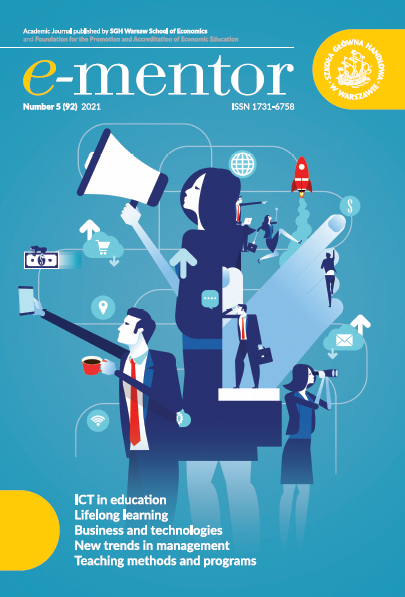Structural capital and its importance for the intellectual capital of an organization
Structural capital and its importance for the intellectual capital of an organization
Author(s): Mirosław WójcikSubject(s): Business Economy / Management
Published by: Szkoła Główna Handlowa w Warszawie, Fundacja Promocji i Akredytacji Kierunków Ekonomicznych
Keywords: intellectual capital; structural capital; human capital; relational capital; efficiency
Summary/Abstract: This article aims to confirm the thesis that structural capital (SC) is a framework for intellectual capital (IC) in an organization, which allows proper configuration of intangibles. Therefore, in the resource-based view, it determines its strategic character. Realizing such a goal, the author pays attention to the nature of relations and connections of individual components of IC, indicating that the SC is the key factor creating intangible assets of the organization as a source of gaining competitive advantage. The reason for taking up this issue is that, despite years of discussion in the field of IC, there are still unanswered questions concerning the management of an organization’s IC, especially its planning and development. The defined knowledge gap concerns the source of strategic characteristics of IC, which, according to the resources-based view, are its rarity, originality, and the inability to be substituted or copied. The ability to shape the strategic value of intangibles makes this source itself a strategic resource and identifying it can change the way we understand IC. To achieve the paper's aim and fill the knowledge gap, the author asks whether SC can provide the characteristics of IC mentioned above and whether the strategic character of IC can be achieved independently of SC. The review and theoretical considerations are based on the analysis of the literature on IC and selected issues that are not directly related to IC, but of which the subject touches on the intangible assets commonly considered to be components of IC, such as the issue of functional stupidity, knowledge management, or resource theory. As a result of the analysis of features and characteristics of SC, the author concludes that SC is responsible for the efficient use of relational capital and human capital potential and thus is a strategic factor shaping IC as a source of achieved competitive advantage. The topic has important practical implications because by confirming the strategic role of SC, indicates the sources of effective creation of IC and its potential. The discussion also identifies directions for further research on this issue, especially the operationalization of IC and its analysis in organizations' internal structures.
Journal: e-mentor
- Issue Year: 92/2021
- Issue No: 5
- Page Range: 61-68
- Page Count: 8
- Language: English

